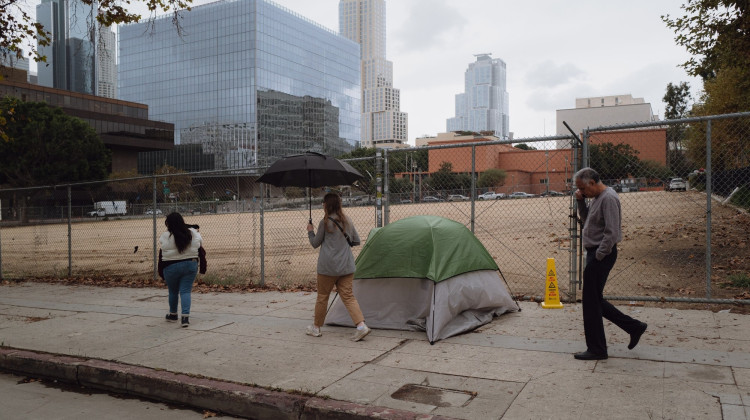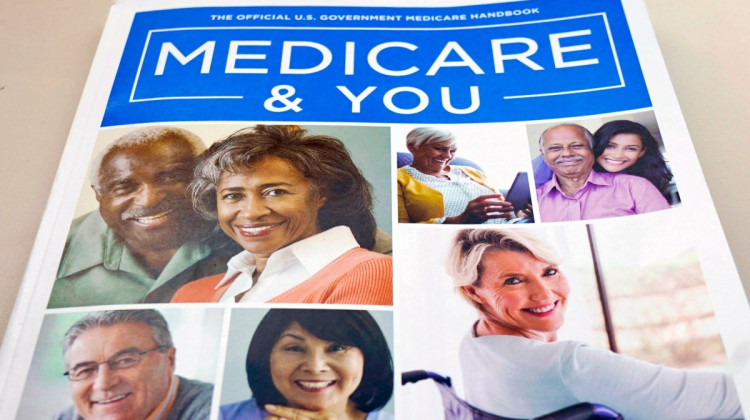
Chris Light / Wikimedia Commons
A plant many people are allergic to, ragweed, sits in a neighborhood outside of Valparaiso.Earlier spring temperatures and longer summers are making seasonal allergies worse in Indiana and across the country. That’s according to the independent researching and reporting collaboration Climate Central.
On average, the Indiana cities studied had eight more days above freezing last year than they did in 1970. Indianapolis added the most days with 16. South Bend was the only city studied in Indiana to lose days — it lost nine.
But more days above freezing don't just make the allergy season last longer, it also makes it more intense.

Melissa Widhalm is the associate director and regional climatologist with the Midwestern Regional Climate Center. She said excess carbon dioxide in the atmosphere not only drives climate change, it can boost the growth of sneezy plants like ragweed and grasses.
“You grow a plant in a warmer, more carbon dioxide rich environment, and they're just going to get bigger, they're just going to produce more pollen," she said.
Those extra allergies could be more than just an inconvenience for people with asthma. Pollen can trigger an asthma attack for more than half of people with the condition in the U.S.
Mark Kaplan chairs the microbiology and immunology department at the Indiana University School of Medicine. He said though you can sometimes treat allergies with over the counter medications, prescription drugs can be expensive and many of them have to be taken every day.
That poses a challenge for lower-income Hoosiers who might not be able to afford them.
“If you stop taking the medications, the inflammation that leads to asthma can return relatively quickly. And so having access and having the support to get that access is really very important," Kaplan said.
Join the conversation and sign up for the Indiana Two-Way. Text "Indiana" to 73224. Your comments and questions in response to our weekly text help us find the answers you need on statewide issues, including this series on climate change and solutions.
According to the Asthma and Allergy Foundation of America, Black, Hispanic and Indigenous residents are more likely to be diagnosed with and hospitalized from asthma.
Kaplan said as the climate changes and plants grow in areas they didn’t before, some Hoosiers could develop new seasonal allergies.
Kaplan said allergy sufferers should wash their face and hands after going outside and try to limit exposure to specific plants they're allergic to. He said COVID-19 has also presented a new way to deal with allergies.
"One of the things you could do is wear a mask when you go outside because that will protect you from pollen," Kaplan said. "The masks that we've been using for the virus are probably much more effective against preventing pollen from getting into your airways than even the virus — although they are certainly effective at that as well."
Widhalm said curbing carbon emissions from things like cars and power plants will help allergies long term, but she said we’re likely to see worse allergy seasons in the next few decades.
You can find out the likelihood of freezing temperatures on a certain date for your city through the Midwestern Regional Climate Center's mapping tool.
The center is also working on a new freeze date tool. It's accepting feedback to improve the tool until May 15.
Contact reporter Rebecca at rthiele@iu.edu or follow her on Twitter at @beckythiele.
Indiana Environmental reporting is supported by the Environmental Resilience Institute, an Indiana University Grand Challenge project developing Indiana-specific projections and informed responses to problems of environmental change.
 DONATE
DONATE








 Support WFYI. We can't do it without you.
Support WFYI. We can't do it without you.